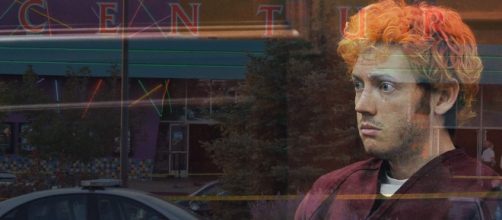The question is becoming more and more important in a world where documentation has shown that most of the mass killers in what has become known as "school shootings" – now also occurring in other settings – in the USA (but also a number of European countries such as Holland, Germany and Finland) were using or in the withdrawal phase after having used Psychiatric Drugs.
The BBC Panorama programme A Prescription for Murder? aired July 26, 2017, suggests a link between antidepressants and murder. The program dug deep down into a couple of specific cases and among others interviewed experts, both judicial and psychiatric, involved in the original investigation of the case of James Holmes, as well as relatives.
The case of James Holmes who planned and carried out an armed attack on innocent people in a cinema killing 12 and wounding some 70 random persons during a showing of a Batman film is interesting, as James Holmes was captured alive just after carrying out the attack. The initial and later interrogations and interviews were video recorded. The BBC program includes some of this original footage as well as footage from the court room - all presented in an investigative and objective approach.
Attack on the BBC
It is, therefore, worrying that the reaction of the psychiatric establishment to this documentary is an attack on the BBC. It appears they have started running a campaign aimed at silencing media which dare to raise the question if there could be a causal relationship between a psychiatric drug and carrying out a violent act.
The reaction to the question of a possibility that a drug could have pushed a person over the limit where self-restraint holds the person back from carrying out the content of an evil fantasy or intent.
The Royal College of Psychiatrists believes that media focusing on such a matter is “unfounded and irresponsible”.
The President of the Royal College of Psychiatrists (RCP), Wendy Burn, stated that because psychiatric drugs are commonly used, it’s not impossible that somebody who commits a violent act may also take antidepressants.
And for this reason (according to the logic she express) one can not question whether there could be a relationship between carrying out a crime or not doing it – due to the effects of the drug. Not even if this would be just by a very limited number of persons.
Risk factors of the drugs
The psychiatrists agree that a person who is insane may carry out a crime because he is insane, but not that a common psychiatric drug can cause a drug user or insane to become either so mentally numb or indifferent, to what he or she actually believe and live by, that he could carry out such a crime.
“The drug has nothing to do with it!” Don’t even infer it, because – and that’s the argument – it could cause people to believe that the psychiatric drug(s) could be a problem, and thus some may want to stop using these drugs.
The drugs known as SSRI antidepressants according to the RCP is of such a "general benefit" that non-psychiatrists may not question whether their apparent benefit “outweigh the risks” of violence caused by these drugs in some rare cases.
By the same rationale, one may ask whether the RCP and other national psychiatric societies would take on to study the social effects of such risk factors introduced by psychiatric drug induced random and unpredictable senseless violence now being a part of life?
Willful neglect of data
The psychiatrists in the national society may well sit back and publicly ignore the impact such social ills as senseless violence and terror does to the life of survivors, relatives and society in general, but when it is caused by willful neglect of data that is available, it may very well carry with it a criminal responsibility. Is the RCP also going to silence that?
The BBC Panorama reporter dared to defy this psychiatric threat to freedom of speech and followed an investigative path which resulted in an interesting and well-documented story on this unspoken cause of mass killings.
CLICK http://www.bbc.co.uk/programmes/b08zjyp1
The program for rights reasons is restricted to residents in the UK but can be viewed on YouTube using the correct keywords.


